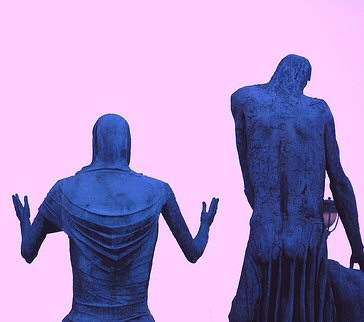
Tomorrow my son turns ten. Double digits. Passes out of the smaller numbers forever. It makes me remember how small he was at the beginning, four pounds, four ounces. Not, I soon learned, a really small baby; large, in fact, next to his NICU classmates, one of the lucky big premature babies moved, after the first night, from an open bed to an isolette; from the center of the green tiled room where the nurses can swiftly access the tiniest, tube-strewn, uncovered bodies when they crash, to one of the clear plastic boxes on the perimeter whose occupants tend to require only the hourly check, the three-hourly feeding, the sunglasses for the jaundice beach. Everyone here, big and little alike, has been scrubbed down with a slurry brown soap. The nurses wear their bacteria-harboring wedding rings pinned to the nametags on their bosoms and write little notes in the supposed handwriting of the just born: “Mom and Dad, Today the doctors put a tube down my nose into my stomach so I could eat enough. I was so happy when you came to visit.”
No one has planned to be here. The babies have the shocked look of wet birds from a smashed-open egg; through papery skin their inner workings shine. The fathers stand like dazed, draped mannequins, there being nothing, no one, they’re allowed to hold. The newly delivered mothers are wheeled in, prone, like battlefield casualties on stretchers. They raise their upper torsos for a fleeting look.
But like the belle of some decrepit ball, or the girl called down by the preacher who throws away a crutch, I rise from my wheelchair and walk to the open bed where my son’s huge eyes, big as half his face shrouded in a downy seven-plus months’ fur, shine up into the operating lights. I am the only woman in this huge hospital in all the thirty days of April to have turned down the drugs, and thus, the only new mother able to walk. “What do you want me to do, just catch it with a bucket?” the doctor had asked at my ninth, or tenth, refusal as I chanted the sentence I’d memorized from the Bradley method book: “Is the baby’s life in danger? What will happen if we do not do this?” I had only attended two of the classes, having planned to take the rest of them during the month of May. But like a good student, I had read ahead in the book: “Maybe if I turn a little, maybe if we try again, we can locate the heartbeat without having to…” The sentences floated up to me like a mantra, or a prayer, or something an animal would think: “Work, then rest. If you are hungry, eat.”
I have always felt uppity and out of place in the south. I have never figured out how many times to refuse a kindness before accepting it, never known whether “we’ll have to get together sometime” meant someone ever wanted to see me again or not. I am continuously guilty of speaking my mind. “If there is one nurse in this building who believes in natural childbirth…” “If I want the injection you will hear me ask for it. If you don’t hear me, don’t offer. Just what about what I just said do you not understand?”
But, “He’s doing so well,” the nurses said. “He’s almost breathing on his own. He’s fighting.”” (I’m almost breathing on my own, I’m fighting….)
I have the ankle band they cut from his leg when, a week later, we brought him home, swaddled in triple clothing to keep warm, wearing a nest of many hats, forbidden to interact with the contaminated world. It’s a circle—my son would love to tell you how to calculate its area, circumference, diameter, and would likely go on to rattle off at least a dozen digits of pi—and it’s about the size of a ring a prize fighter slips off a big burly finger before putting on the gloves. I keep it in a little box along with his first words and a picture of me standing there that first night, floodlit, holding him.
Robin Behn is the author of three books of poems including Horizon Note, winner of the Brittingham Prize. She teaches at the University of Alabama and Vermont College, and lives in Birmingham. Her work has appeared recently in Caffeine Destiny, Field, Cue, Volt, Manhattan Review, www.poetrynet.org, and Best American Poetry.
photo by Dinty W. Moore
